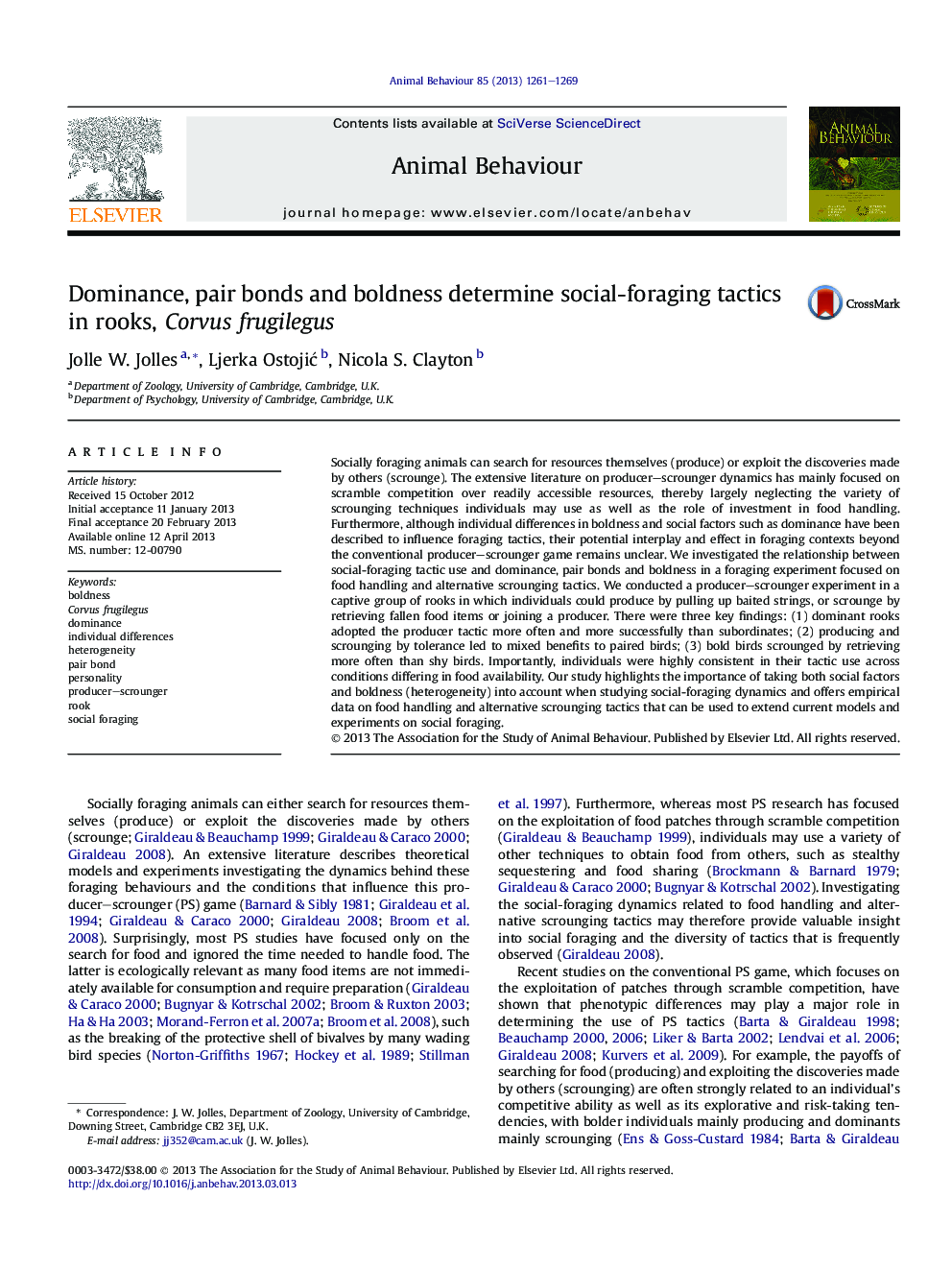| Article ID | Journal | Published Year | Pages | File Type |
|---|---|---|---|---|
| 10970747 | Animal Behaviour | 2013 | 9 Pages |
Abstract
Socially foraging animals can search for resources themselves (produce) or exploit the discoveries made by others (scrounge). The extensive literature on producer-scrounger dynamics has mainly focused on scramble competition over readily accessible resources, thereby largely neglecting the variety of scrounging techniques individuals may use as well as the role of investment in food handling. Furthermore, although individual differences in boldness and social factors such as dominance have been described to influence foraging tactics, their potential interplay and effect in foraging contexts beyond the conventional producer-scrounger game remains unclear. We investigated the relationship between social-foraging tactic use and dominance, pair bonds and boldness in a foraging experiment focused on food handling and alternative scrounging tactics. We conducted a producer-scrounger experiment in a captive group of rooks in which individuals could produce by pulling up baited strings, or scrounge by retrieving fallen food items or joining a producer. There were three key findings: (1) dominant rooks adopted the producer tactic more often and more successfully than subordinates; (2) producing and scrounging by tolerance led to mixed benefits to paired birds; (3) bold birds scrounged by retrieving more often than shy birds. Importantly, individuals were highly consistent in their tactic use across conditions differing in food availability. Our study highlights the importance of taking both social factors and boldness (heterogeneity) into account when studying social-foraging dynamics and offers empirical data on food handling and alternative scrounging tactics that can be used to extend current models and experiments on social foraging.
Keywords
Related Topics
Life Sciences
Agricultural and Biological Sciences
Animal Science and Zoology
Authors
Jolle W. Jolles, Ljerka OstojiÄ, Nicola S. Clayton,
